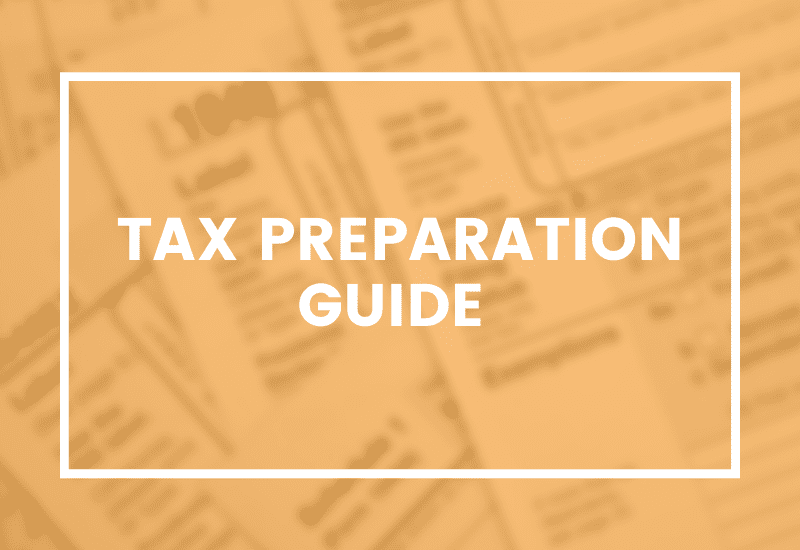Tax Preparation Guide
- March 24, 2022
- Posted by: CKH Group
- Category: Tax tips

As tax season approaches, it’s essential to start planning for the April 15th deadline. Proper preparation can save you time, stress, and money. This comprehensive tax preparation guide is designed to help you get organized and ready to file your taxes efficiently.
Gather Essential Paperwork
No matter how you choose to file your taxes, having all your necessary documents in order is crucial. Here’s a breakdown of what you need:
Personal Information
The IRS requires specific details to verify who is filing and who is included in your tax return. You’ll need to have Social Security Numbers and dates of birth for yourself, your spouse, and any dependents.
Income Documents
After gathering your personal information, it’s time to collect all the documents that reflect your income for the tax year. These may include:
- W-2 Forms: If you’re a traditional employee, your employer should provide this form, which reports your annual wages and the taxes withheld.
- 1099 Forms: There are various 1099 forms for nonemployee income. For example:
- 1099-NEC for contract work
- 1099-DIV for dividends
- 1099-MISC for miscellaneous income like royalties or prize winnings Organizing these forms early will make your tax preparation process smoother.
Organize Deductions
Tax deductions can significantly reduce your tax liability, so it’s important to keep thorough records of any qualifying expenses. To learn more about deductions you can take read this article. Here are some common deductions you may be eligible for:
Charitable Donations
For the 2021 tax year, you can claim up to $300 in charitable donations on top of the standard deduction. This applies to both cash and property donations. Ensure you keep receipts, a description of the donated items, and details of the contribution’s date and location for any non-cash donations.
Child Care Expenses
If you’ve paid for child care for a dependent under the age of 13, you might qualify for a child care deduction. You can claim 50% of qualifying expenses up to $8,000 for one child or $16,000 for two or more children. Be sure to document the provider’s name, address, and tax ID, along with the amount paid.
Home Mortgage Interest
Homeowners can deduct the interest paid on loans used to buy or improve their homes. To claim this deduction, use Form 1098, which details the interest you’ve paid throughout the year.
Education Expenses
Keep track of expenses related to education, such as:
- Tuition and fees
- Student loan interest
- Qualified student loan payments
- Work-related education required by your employer or for improving skills Note that non-essential costs like transportation or room and board are not deductible.
Medical and Dental Expenses
You can deduct qualified medical and dental expenses that exceed 7.5% of your adjusted gross income. This includes out-of-pocket payments for doctors, dentists, and other healthcare professionals.
Plan for Quarterly Tax Payments
If you’re self-employed, a freelancer, or an independent contractor, you might need to make estimated quarterly tax payments. This applies if you expect to owe at least $1,000 in taxes.
To calculate your quarterly payments, estimate your total tax liability for the year, including self-employment and income taxes, and divide the total by four. The due dates for these payments are:
- Quarter 1: April 15th
- Quarter 2: June 15th
- Quarter 3: September 15th
- Quarter 4: January 15th
Be sure to pay on time, as underpayment penalties may apply if you don’t pay enough by each due date, even if you’re due a refund when you file your return.
File Your Taxes
Once you have everything prepared, the final step is filing your taxes with the IRS and your state. You can choose to file on your own or seek assistance from a tax professional. If you need help, CKH Group is here for you. Contact us to schedule a free consultation, call us at 1-770-495-9077, or email us at [email protected].
By following this tax preparation guide, you’ll be well on your way to a stress-free tax season. Proper planning and organization are key to ensuring you meet all deadlines and maximize your deductions.
The above article only intends to provide general financial information and is based on open-source facts, it is not designed to provide specific advice or recommendations for any individual. It does not give personalized tax, financial, or other business and professional advice. Before taking any form of action, you should consult a financial professional who understands your particular situation. CKH Group will not be held liable for any harm/errors/claims arising from the articles. Whilst every effort has been taken to ensure the accuracy of the contents we will not be held accountable for any changes that are beyond our control.
